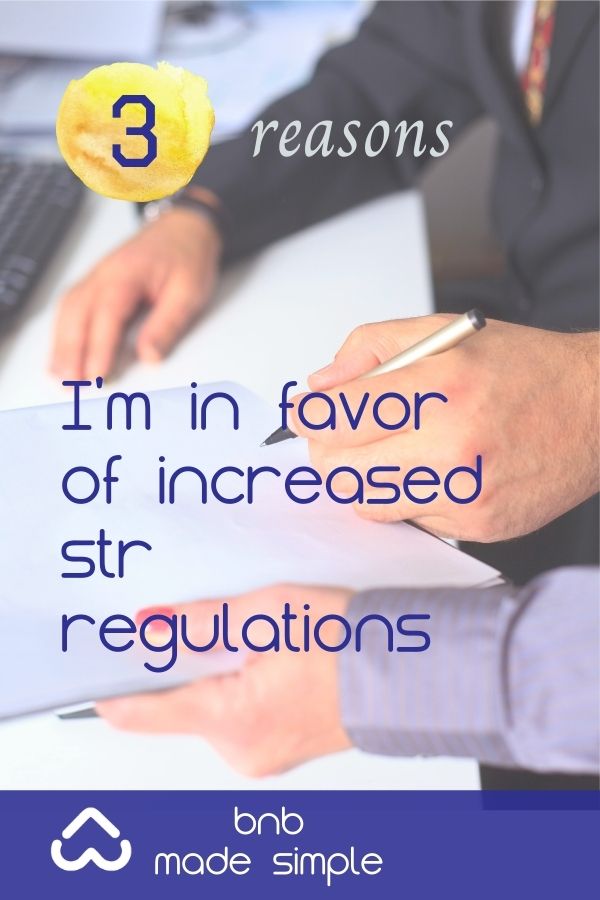Last week I led a debate with my ESL students about the pros and cons of allowing increased immigration. It was a lively discussion, and I enjoyed it so much. It’s amazing to see people grow and flourish, especially in a language that isn’t their native tongue.
But I digress.
A similar debate is happening in states and cities all across the country. And it may affect you a whole lot more than the immigration debate would.
What am I talking about?
The debate over short-term rental legislation.
For the past few years, local governments have had their hands full dealing with Airbnbs that cause problems and create unhappy neighbors. Many cities have considered banning short-term rentals altogether (some actually have).
It’s an unsettled (and sometimes unsettling) time to be an Airbnb host. But I’m really not worried about it.
In fact, I’m excited about it.

Here are 3 reasons why I think increased regulation is a good thing:
Increased revenue for cities
A lot of people have expressed concern that legislation would be bad for Airbnbs because it opens the door for short-term rentals to be banned completely. And it’s true that some areas of the country and world have done just that.
But local governments are starting to see the benefit to them of allowing short-term rentals with restrictions – increased tax revenue.
If they allow STRs with restrictions – annual permit fee, percentage of bookings remitted to the government, etc – they’ll get a piece of the pie. If they outlaw them completely, they get nothing.
Most governments are starting to realize that they want a piece of that pie.
In my own city of Atlanta, one of the local city governments recently banned all versions of STRs, no exceptions…only to do an about-face a few months later.
Our world is changing and local governments are starting to realize that they need to get on board, or get left behind.
Legitimacy and stability
That brings me to my second point – legitimacy. Defined, codified guidelines about what’s allowed and what isn’t allowed brings an air of legitimacy and stability to your STR that has previously been absent.
What does that mean in practice?
- It means that when you call the cops on your guest who won’t leave they’ll have something they can legally do to help you.
- It means that when a neighbor gets angry about an unauthorized party they’ll be able to report it and actually expect local law enforcement to have the teeth to back them up.
- It means that you’ll get a lot less “not my problem, figure it out yourself” when you’re trying to get help from cops or other local government officials.
I don’t know about you, but that sounds really amazing to me.
More barriers to entry
I was trained in economics in college, so using this term is definitely the econ nerd in me escaping. But the principle is important, even if you don’t know the actual phrase.
A barrier to entry is anything that would keep you from entering into a certain industry. It can be required certifications, start-up investment capital needed, zoning restrictions or other governmental regulations, etc.
Right now there are almost no barriers to entry for starting a STR. Whether you have a house, a spare room, or just a tent in your back yard, you can be up and running with an Airbnb listing in less than an hour.
This means that in many areas of the world, the market is getting flooded.
Hosts, like local governments, all want a piece of the pie.
But oversaturation of the market is making it harder and harder to make decent money. I’m looking forward to increased legislation because it will make it harder to become a host…which also means that if you are still able to get into the market, you’ll find it a lot less crowded than it currently is.
So there you have it. Three reasons I’m looking forward to increased regulations in my market.
